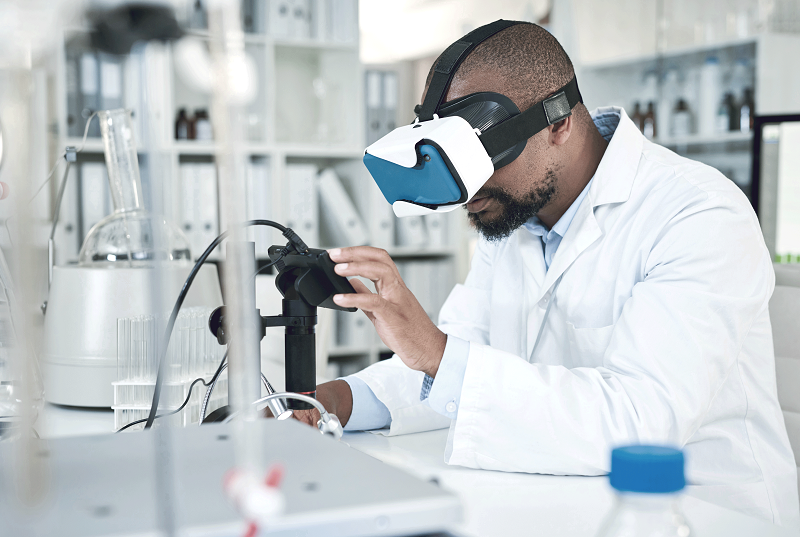Introduction: Generative AI – its promise
The world of healthcare marketing is ever evolving, and the next frontier is the impact of generative AI. Though a technology in progress, it has already heavily contributed to the progress of the health sector. It has provided healthcare consulting professionals with tools that can deep read, analyze, assess, and find meaning in vast medical datasets in order to create personalized content, and accurately predict patient needs. All this without compromising patient privacy and accuracy. Its promise crystallizes hope.
Navigating the altered landscape
With generative AI, we can enable hyper-personalization. It adept at many crucial functions, such as tailoring messages, recommending relevant health resources, and predicting of patient preferences. One can benefit from an AI-powered chatbot that communicates effectively, informatively, appropriately, and comfortingly to patients. It can answer queries and offer requisite support to those in need. We can foster sufficient trust and loyalty with this degree of personalization.
Creating and optimizing content
Marketers benefit from generative AI’s assistance in creating social media campaigns and blog posts. Their expertise comes in handy when they use these innovative tools to better imagine and construct the intended content. It is a powerful aid to thought or at least the sharper realization of ideas. With these tools compelling headlines can be drawn, engaging narratives can be crafted, and content can be optimized for SEO maximization. This liberates marketers to focus on strategy while AI heavy lifts the drudgery.
Using predictive modeling to create successful campaigns
A standard practice and effective way to predict campaign outcomes is to analyze historical data. This can be done exceedingly better with generative AI. Pattern recognition allows for correct anticipation of patient behavior and in addition allows for reliable recommendation of optimal channels. From increasing vaccine awareness or promoting telemedicine, AI-enabled thought and insight lead human decision-making to a more reliable space.
Clinical decision support augmentation
The capabilities of generative AI in marketing must be explored beyond marketing. It contributes to clinical decision-making. For instance, a physician who is contending with a complicated case with several variables. Generative AI can crunch through, if necessary, tomes of patient data, medical literature, and treatment protocols and guidelines to recommend personalized therapeutic measures. This can vary, for example, the construction of drug regimens that are well-suited to specific patients or the prediction of disease progression. Clinical expertise is augmented to be enhanced, and the trained clinician is better able to meet asymmetrical health challenges ranging from diseases that are hard to diagnose with preliminary symptoms to patient-specific changes in disease progressions or the physiological rejection of certain medications by specific individuals.
Adapting to patient behavior
Generative AI can adapt to patient behavior in dynamic ways. It habitually learns from interactions and tailors marketing messages based on personal preferences. Repeated, consistent, and challenging engagement with content can help prioritize the creation and refinement of the specific type of campaigns (for example, information regarding the Hepatitis C Virus will help it tailor the right campaign for increased awareness of the deleterious illness). The communication, therefore, remains relevant, and the patient remains beneficially engaged.
The acceleration of diagnoses and insights
Generative AI cleaves through great tomes of medical datasets, identifying meaningful patterns, and making sense of the trends with velocity and efficiency that would be hard for human beings to immediately and consistently achieve. This accelerates the diagnosis of diseases by the provision of periodic care and necessary insights to healthcare professionals. Let us conceptualize an AI system that aids radiologists in the identification of slight anomalies in medical images, leading to faster disease detection and improved patient outcomes.
Lightening the administrative load
Healthcare consultants constantly juggle with administrative tasks, which shifts their focus from patient care which is their primary duty. Generative AI can streamline processes with the automation of repetitive work. For instance, the transcription and structuring of patient interactions into easily accessible notes within moments removes the necessity of manual note-taking and administrative overhead. This is a key step in the further modernization of health systems infrastructure, and generative AI gets rid of needless drudgery to create more focused and efficient medical care.
Concerns about ethical violations
Generative AI’s immense potential comes with need to be cautious. Training bias, breach of privacy, and an over and uncritical reliance on AI generated advice are believable risks. It is essential, therefore, for marketers to ensure uncompromising transparency, adequate encouragement and enable ethical use, and robust governance.
Author Bio:
As an enthusiast for healthcare marketing, the author is deeply enthusiastic about leveraging advanced technologies for the purpose of improving patient engagement and driving positive health outcomes. The author has a background in data analytics and a pronounced inclination towards storytelling.

